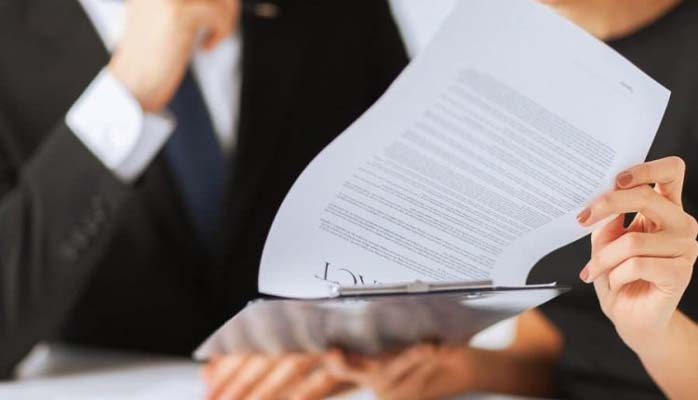Apple Inc. is agreeing to pay $24.9 million in a settlement to a lawsuit over the patented features of Siri. The plaintiffs had sued Apple, alleging that the virtual assistant infringed on patents and violated privacy laws by turning on unprompted, collecting data without their consent, and not working as advertised. Now that Apple has agreed to settle the lawsuit, the next question is: will the public get the benefits of Siri?
Apple agrees to pay $24.9 million to settle a lawsuit
The settlement comes months before the case was set to go to trial. The lawsuit against Apple’s Siri assistant was brought by Dynamic Advances, which alleged that the iPhone maker violated a patent licensed from Rensselaer Polytechnic Institute. Under the settlement, Apple will pay $5 million to the parent company of the patent holder and will follow up with the rest of the settlement money later.
This settlement will settle a patent infringement lawsuit filed by a company called Dynamic Advances. A patent is a form of natural language user interface for enterprise databases. The plaintiff claimed that Apple patented the concept but did not make it available to other companies. The company sued Apple for violating the patent, which was awarded to Dynamic Advances in 2007.
Apple’s virtual assistant violated the patent
A Chinese AI company has sued Apple over its virtual assistant, claiming that it has copied their technology. The case, which has been ongoing for nearly eight years, may lead to an injunction. The Chinese court ruled that Shanghai Zhizhen owns the patent that Siri uses in the country. However, the Chinese courts are rarely willing to impose an injunction. Although Apple is Apple’s second-largest export market, China is one of the countries where its sales are largest, accounting for almost one-fifth of its quarterly revenue.
In June, a U.S. District judge ruled against Apple, but he declined to halt the case. Although the lawsuit involves different patents from the Samsung case that went to trial in California last year, the judge did not allow the sales ban to go into effect. He also dismissed the company’s request to permanently bar Siri from the market. But the decision is not final. Consumers are encouraged to pursue the case in the future.
Apple’s contractors were tasked with analyzing snippets of queries
A former employee of the tech giant claimed that the company’s contractors were listening to snippets of customer interactions with Siri to make improvements to the software. In one shift, the employees listened to a thousand recordings of Siri conversations, each only a few seconds long. The recordings were analyzed by the contractors, who were bound by nondisclosure agreements. The recording sessions typically involved conversations between customers with British English, Australian or Canadian accents. A smaller team was assigned to analyze queries in European languages.
The contractor graded the responses of Siri voice assistant users, even though these recordings often contained sensitive details. Apple contractors regularly heard people’s private medical information, drug deals, and recordings of couples having sex. They had no idea that such recordings contained such details. The contractors were also under strict confidentiality agreements. It is unclear if they were notified of the lawsuit.
Siri didn’t work as expected
If you find that Siri doesn’t work on your iPhone, you’re probably having network problems. To fix this problem, you should reboot your phone. If that doesn’t work, try switching to Airplane Mode. This will reset your network and reset any features that depend on the internet. It will also clear the memory caches and fix any Siri issues you’re experiencing. You can also use FoneDog iOS Toolkit to fix the system’s issues.
If you can’t hear Siri correctly, your microphone may be blocked by fluff. You can try blowing gently into it with compressed air or using a pin. Make sure not to poke it with your finger because it might damage it. Also, try turning off the cellular data on your iPhone. Then, try saying “Hey Siri” to see if the problem persists. It may just be a software issue.
Targeted advertising arose from Siri interception
Earlier this year, a class-action lawsuit against Apple filed by Lopez alleges that the company’s Siri digital assistant violated her privacy by using audio recordings to target advertisements. However, the lawsuit fails to allege any economic injury. Lopez has 20 days to file an amended version of the class action suit. Meanwhile, a similar class-action lawsuit has been filed against the Amazon Alexa smart speakers for capturing biometric data from users.
Apple argued that it did not knowingly intercept conversations and that users give consent when they activate Siri. The company also pointed to the fact that the device will alert users if it has intercepted their private conversations. This ruling further bolstered the privacy claims of the plaintiffs, who claim they received targeted advertisements based on the content of their private conversations. While the court did find the lawsuit unreliable, the case will likely become a precedent for companies that use similar devices.
Apple could refile the lawsuit
The U.S. District Court judge has rejected a class-action lawsuit against Apple, claiming that the voice-activated Siri assistant violates consumer privacy. Plaintiffs argued that their private conversations were recorded because of accidental activations, and Apple then disclosed that information to third parties. They also alleged that Siri users received targeted ads for products like Pit Viper sunglasses and Olive Garden. While Apple says the reviews help improve the product, some privacy advocates have doubts.
The plaintiffs have 20 days to refile the lawsuit if they so choose. The judge’s ruling in the previous lawsuit could change the case’s outcome. Apple’s move may encourage a re-file. The judge also ruled that Apple’s current privacy policies do not permit it to violate customer privacy. The company is reviewing its privacy policies and evaluating whether they’re still appropriate. The company could also seek a class-action ruling if the lawsuit is successful.



